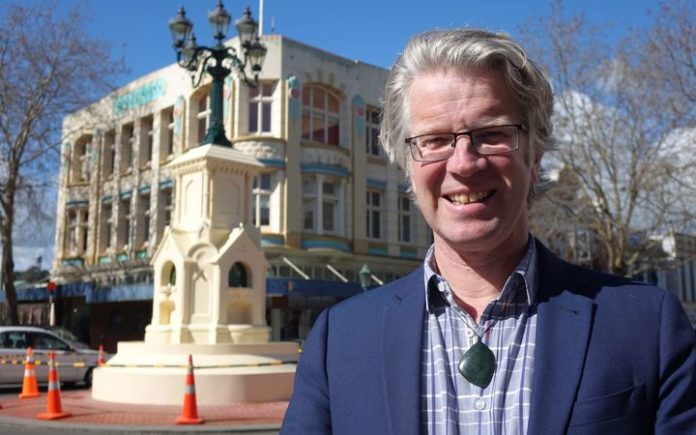More than 170 scientists, researchers, local government elected members and officials gathered recently at the LGNZ Climate Change Adaptation Symposium.
Sponsored by the Deep South National Science Challenge, areas of discussion included gaps in current adaptation policy, decision making in uncertain times, Māori approaches to climate change adaptation, scientific adaptation efforts concerning flood mapping and access to river data and a new report on how Land Information Memoranda (LIM) changes could serve to better communicate hazard information.
“Local government has always seen itself on the frontline in the battle against the effects of climate change, whether it is from the angle of mitigation or adaptation,” said LGNZ vice-president, Whanganui Mayor, and symposium keynote speaker Hamish McDouall (pictured).
“This role was confirmed by the Climate Change Commission in its draft report, which is why we have pulled together leading thinkers to help shape our actions on the ground, and around the council table,” he said.
“The symposium was an opportunity to look at the tools we’ve got – whether the resources we have or the legislation we act under – and as a group try and figure out what we need from the upcoming climate change adaptation and resource management reform.”
“The difference with this symposium was that a huge number of on-the-ground action takers were in attendance. They live and breathe the work of protecting people from natural hazards. They’re the people delivering resilient infrastructure, engaging with communities, making decisions and doing the modelling on the increasing array of severe weather events exacerbated by climate change.”
He said the release of LGNZ’s LIM Report detailed just how difficult it is for councils to get hold of fit-for-purpose tool that can inform better decision-making on adapting to climate change.
“The LIM Report is a microcosm of the policy challenge that local government faces,” continued Mr McDouall.
“We were interested in whether a new LIM template could be a good way to disclose natural hazard information in the short term, before the new RM reform kicks in.”
“The report shows that 20th century tools are not fit for purpose when it comes to 21st century challenges. That sets a clear direction for policy makers – we need to stop tinkering around the edges and develop new tools to tackle a monumental issue like climate change. Yes, the RM Reforms process is a step in the right direction, but much more needs to be done if we’re to tackle this problem head on.”
“Climate change is a national issue and it needs national legislation and funding tools to address it,” Mr McDouall concluded.
Video of the discussions can be found here.



